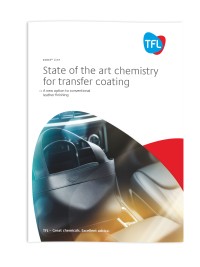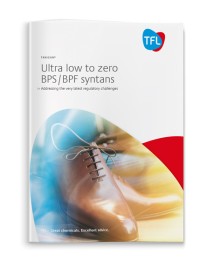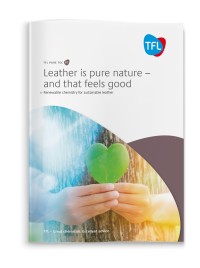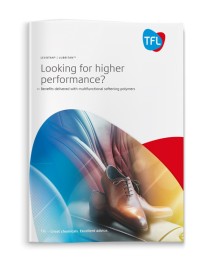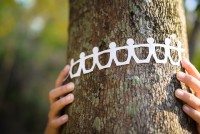- Necessary cookies help make a website usable by enabling basic functions like page navigation and access to secure areas of the website. The website cannot function properly without these cookies.
- Cookiebot1Learn more about this providerCookieConsentStores the user's cookie consent state for the current domain
- Google3Learn more about this provider
Some of the data collected by this provider is for the purposes of personalization and measuring advertising effectiveness.
rc::aThis cookie is used to distinguish between humans and bots. This is beneficial for the website, in order to make valid reports on the use of their website.rc::bThis cookie is used to distinguish between humans and bots.rc::cThis cookie is used to distinguish between humans and bots. - Powr1Learn more about this providerunique_idPreserves users states across page requests.
- Usercentrics GmbH1Learn more about this provider1.gifUsed to count the number of sessions to the website, necessary for optimizing CMP product delivery.
- nr-data.net
www.tfl.com2JSESSIONID [x2]Preserves users states across page requests.
- Cookiebot
- Preference cookies enable a website to remember information that changes the way the website behaves or looks, like your preferred language or the region that you are in.
We do not use cookies of this type.
- Statistic cookies help website owners to understand how visitors interact with websites by collecting and reporting information anonymously.
- Google7Learn more about this provider
Some of the data collected by this provider is for the purposes of personalization and measuring advertising effectiveness.
collectUsed to send data to Google Analytics about the visitor's device and behavior. Tracks the visitor across devices and marketing channels._ga [x2]Registers a unique ID that is used to generate statistical data on how the visitor uses the website._ga_#Used by Google Analytics to collect data on the number of times a user has visited the website as well as dates for the first and most recent visit._gatUsed by Google Analytics to throttle request rate_gid [x2]Registers a unique ID that is used to generate statistical data on how the visitor uses the website. - Powr1Learn more about this providersrcDetects how the user reached the website by registering their last URL-address.
- YouTube2Learn more about this provideryt-player-headers-readableUsed to determine the optimal video quality based on the visitor's device and network settings.VISITOR_INFO1_LIVETries to estimate the users' bandwidth on pages with integrated YouTube videos.
- public.powrcdn.com3ahoy_unique_#Registers statistical data on users' behaviour on the website. Used for internal analytics by the website operator.ahoy_visitRegisters statistical data on users' behaviour on the website. Used for internal analytics by the website operator.ahoy_visitorRegisters statistical data on users' behaviour on the website. Used for internal analytics by the website operator.
- Google
- Marketing cookies are used to track visitors across websites. The intention is to display ads that are relevant and engaging for the individual user and thereby more valuable for publishers and third party advertisers.
- Google3Learn more about this provider
Some of the data collected by this provider is for the purposes of personalization and measuring advertising effectiveness.
_GRECAPTCHAThis cookie is used to distinguish between humans and bots. This is beneficial for the website, in order to make valid reports on the use of their website.NIDRegisters a unique ID that identifies a returning user's device. The ID is used for targeted ads.rc::fThis cookie is used to distinguish between humans and bots. - Powr1Learn more about this providerPOWR_PRODUCTIONUsed in context with pop-up advertisement-content on the website. The cookie determines which ads the visitor should be shown, as well as ensuring that the same ads does not get shown more than intended.
- YouTube19Learn more about this provider#-#Used to track user’s interaction with embedded content.iU5q-!O9@$Registers a unique ID to keep statistics of what videos from YouTube the user has seen.LAST_RESULT_ENTRY_KEYUsed to track user’s interaction with embedded content.nextIdUsed to track user’s interaction with embedded content.requestsUsed to track user’s interaction with embedded content.TESTCOOKIESENABLEDUsed to track user’s interaction with embedded content.yt.innertube::nextIdRegisters a unique ID to keep statistics of what videos from YouTube the user has seen.yt.innertube::requestsRegisters a unique ID to keep statistics of what videos from YouTube the user has seen.ytidb::LAST_RESULT_ENTRY_KEYStores the user's video player preferences using embedded YouTube videoYtIdbMeta#databasesUsed to track user’s interaction with embedded content.yt-remote-cast-availableStores the user's video player preferences using embedded YouTube videoyt-remote-cast-installedStores the user's video player preferences using embedded YouTube videoyt-remote-connected-devicesStores the user's video player preferences using embedded YouTube videoyt-remote-device-idStores the user's video player preferences using embedded YouTube videoyt-remote-fast-check-periodStores the user's video player preferences using embedded YouTube videoyt-remote-session-appStores the user's video player preferences using embedded YouTube videoyt-remote-session-nameStores the user's video player preferences using embedded YouTube video__Secure-ROLLOUT_TOKENPendingYSCRegisters a unique ID to keep statistics of what videos from YouTube the user has seen.
- Google
- Unclassified cookies are cookies that we are in the process of classifying, together with the providers of individual cookies.
- Powr1Learn more about this provideruserAffinityPending
- Powr
The law states that we can store cookies on your device if they are strictly necessary for the operation of this site. For all other types of cookies we need your permission.
This site uses different types of cookies. Some cookies are placed by third party services that appear on our pages.
You can at any time change or withdraw your consent from the Cookie Declaration on our website.
Learn more about who we are, how you can contact us and how we process personal data in our Privacy Policy.
Please state your consent ID and date when you contact us regarding your consent.









